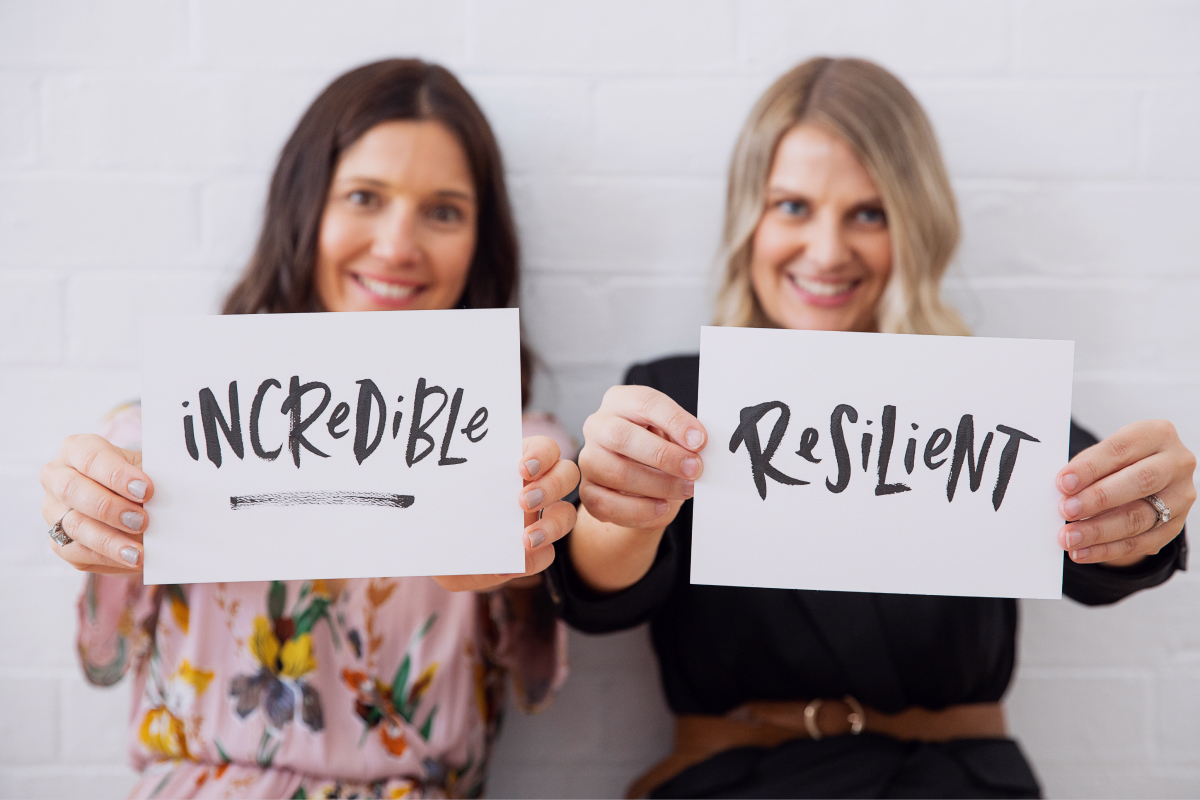Do you accept yourself as you are? As working parents and caregivers, many of us are stretched, feeling stressed, and possibly guilty of being too hard on ourselves. Bec Williams of The You Project is here to unpack self-acceptance and remind you that happiness is right in front of you — if you’re paying attention.
There’s a lot of unpacking going on lately. Not the kind my Poppa knew — the unpacking of his caravan and preparing the campsite which invariably took a good day by the time he’d set up the awning, toaster, and Nana’s gin cabinet. Rather, ‘unpacking’ in the sense of demystifying a term, breaking down a concept, or explaining an over-inflated thought.
A mentor recently asked me to unpack my concept of self-belief, and I had a go because while I chuckled about all the unpacking — at conferences, at companies — I noticed the term had sneakily weaved its way into my vocabulary. So, today I’m getting on board with the jargon and I’m unpacking self-acceptance.
The self-acceptance formula
Self-acceptance is an acceptance of yourself in entirety (the good, the bad, and the awesome) or, as Nathaniel Branden explains in The Six Pillars of Self Esteem1, “My refusal to be in an adversarial relationship with myself”.
Ask yourself
The Latin for ‘accept’ is ‘accipere’, which means ‘to receive, willingly’. Simple question: Do you accept yourself as you are?
Love your unconditioned self
Do you know the difference between your ego and your unconditioned self? Your ego developed during childhood to help cope with being in a family and going to school, and you learned you needed to behave in a certain way to receive approval.
Your unconditioned self is who you are without labels from the outside world. To practice acceptance, you must get to know and love your unconditioned self and not cater to the ego which will constantly be trying to be ‘fixed’.
Stand up to your inner critic
How critical are you? We are usually our own worst critic (often misinterpreted as high standards), translating into, You are not good enough which tells a very bad story for your self-esteem. The amount of judgment we direct towards others is a reflection of how we feel about ourselves.
Practice forgiveness and compassion towards yourself and others. We all make mistakes but we are human, and to live a life where you never accept, learn and move on from these perceived weaknesses will keep you stuck in the past.
Accept your strengths
Do you accept all of your strengths? Most of us struggle to shine at what we’re really great at because we’re afraid of who we might need to be to ‘bare all’. But accepting our talents is an essential step for self-acceptance and will allow you to see limitations as opportunities rather than as obstacles.
Happiness is where you are
“True self-acceptance is the realization that you are what you seek,” Robert Holden.
Make a conscious effort to put it into practice and see the results. Right now, acknowledge three strengths that have contributed to something awesome you have done in the last month. Equally, practice a conscious acceptance of a choice or action you haven’t always loved about yourself but is part of who you are. Note down five ways you are not being very kind to yourself now, and counterbalance that with five ways you can be. Remind yourself: happiness is where I am.
If this all sounds too fluffy for you, that’s okay, but why not spend a day observing your internal dialogue and seeing how kind you are to yourself? If you are, that’s awesome. If not, perhaps it’s something to consider.
Written by Bec Williams, performance coach and owner of @the.you.project.
Source: 1Branden, N., (1994) The six pillars of self-esteem, New York, Bantam.







